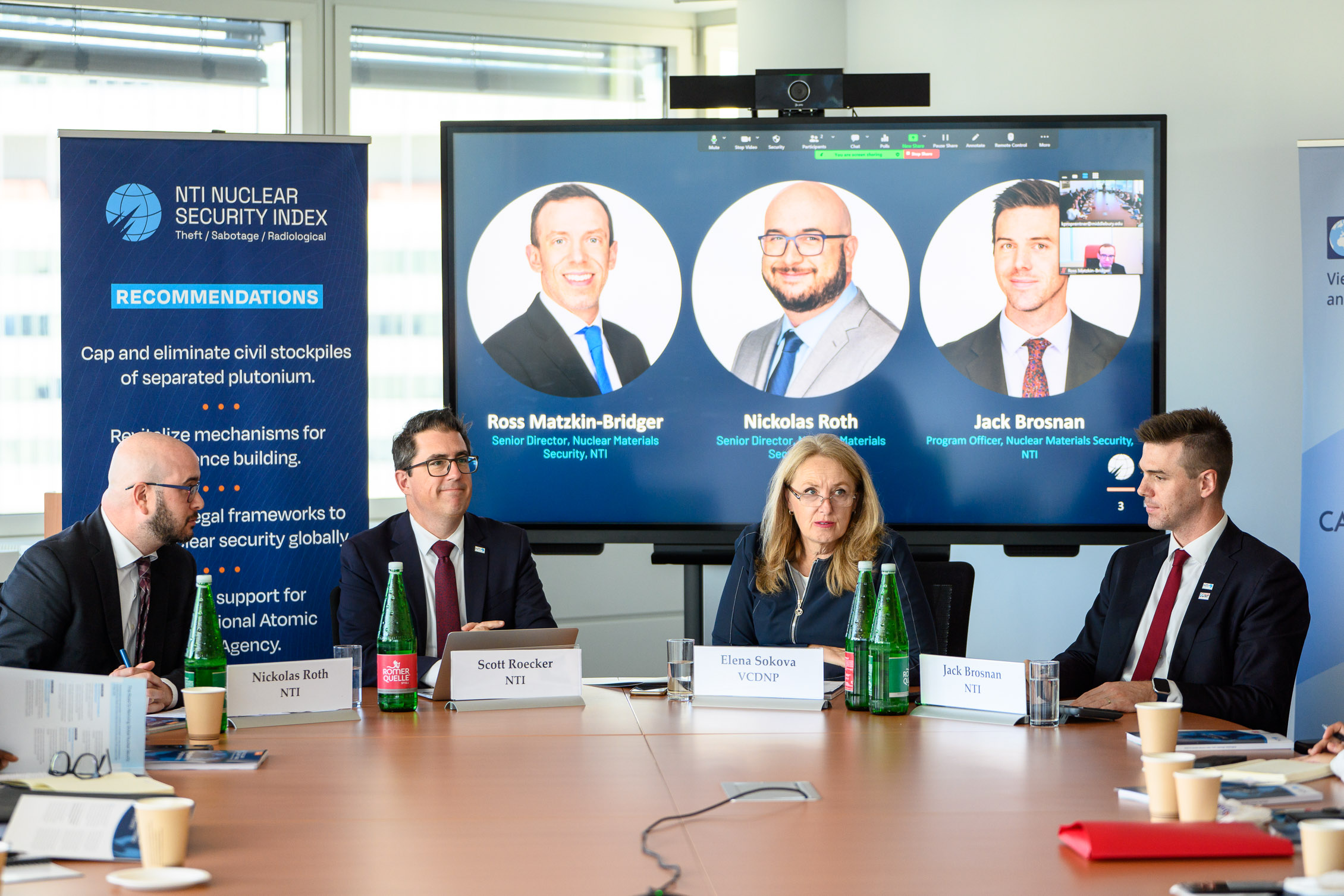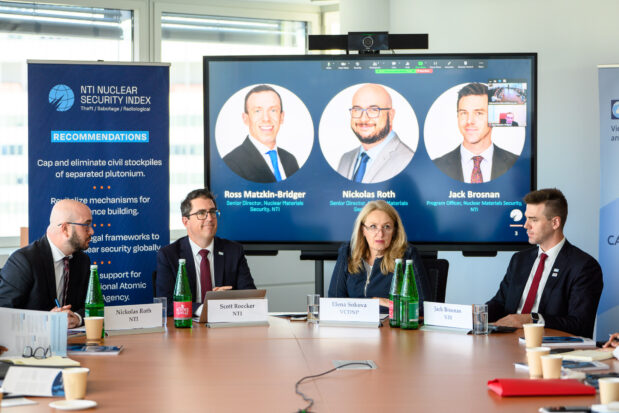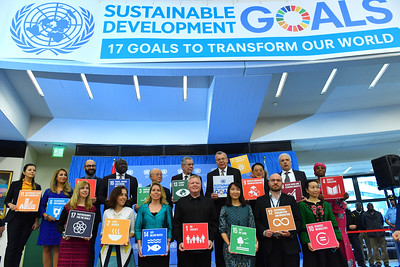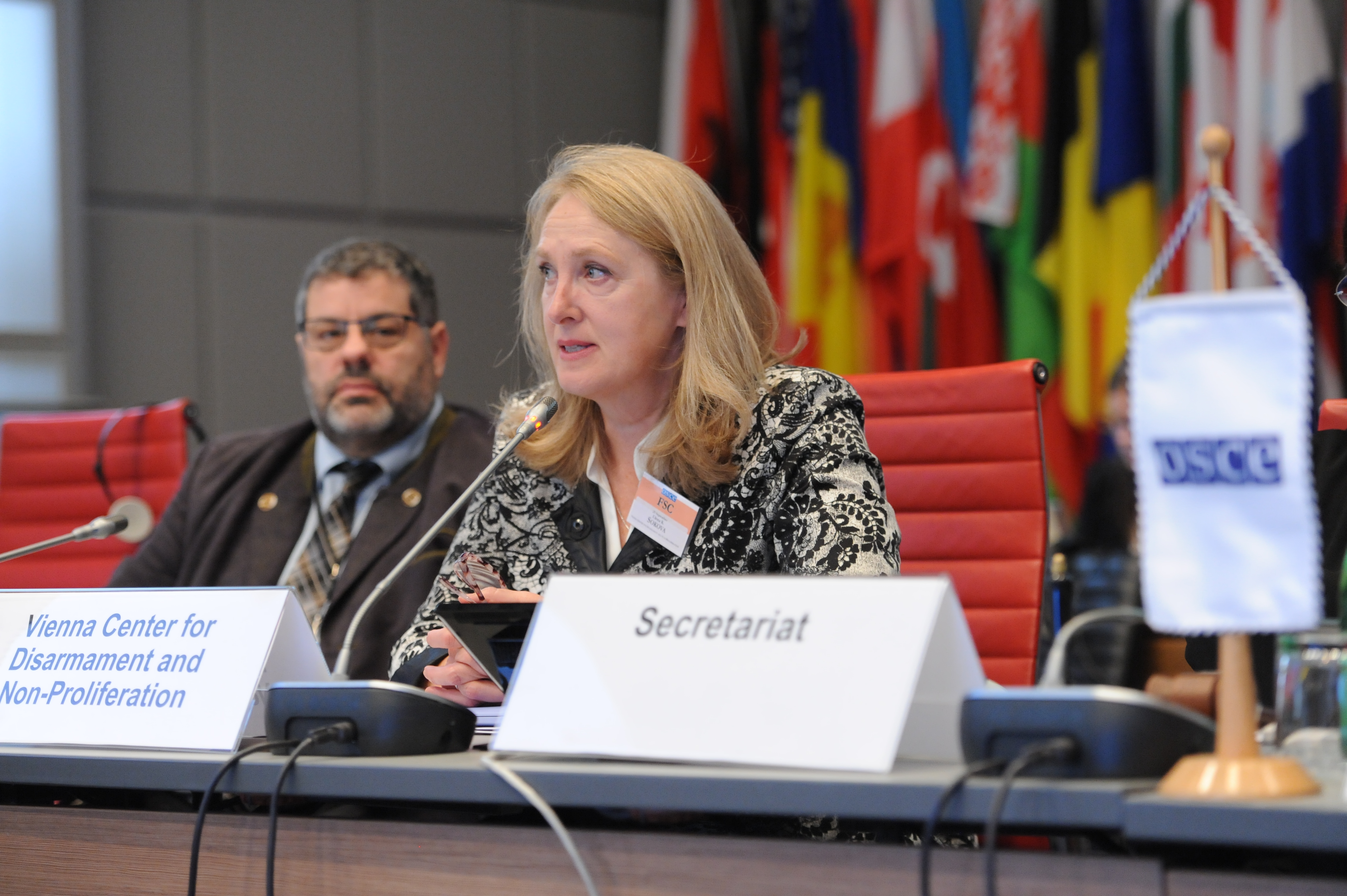
In July 2023, the Nuclear Threat Initiative (NTI) released the sixth edition of its Nuclear Security Index. This most recent edition, titled Falling Short in a Dangerous World, warns against neglecting nuclear security in today’s rapidly changing threat and risk environment. To bring attention to this important topic, the VCDNP and NTI to hosted an event to highlight and discuss the key findings of the 2023 Index.

The panel discussion on 27 September 2023 was moderated by VCDNP Executive Director Elena K. Sokova and featured the NTI experts behind the Nuclear Security Index.
Elena K. Sokova stressed her appreciation for NTI’s work on the sixth edition of the Index, noting that the VCDNP has hosted events on the Index since its inception in 2012. She added that the 2023 Index observed some disconcerting trends as well as tangible measures that states could take to reverse them, particularly as they prepare for the 2024 International Conference on Nuclear Security.
Scott Roecker stressed the changes that have taken place around the world since the last edition of the Index, published in July 2020. The impact of the COVID-19 pandemic has unfolded globally. The Russian invasion of Ukraine in 2022 and the subsequent military activities around the Zaporizhzhia Nuclear Power Plant have altered the nuclear risk environment. He noted that 2023 was the first year since its initiation that the Index has shown a decrease in nuclear security, including among countries with major civil nuclear programmes. He underlined the urgent need for governments to pay attention to nuclear security. The Index provides a template for strong global nuclear security.
NTI experts Mr. Matzkin-Bridger, Mr. Roth, and Mr. Brosnan set out the key findings identified in the 2023 Index, and how these findings were supported by underlying data. Many of these findings reported declining nuclear security conditions around the world, such as:
However, the Index also identified positive findings:
In their remarks and the audience Q&A, the panellists emphasised the importance of continued, high-level attention to nuclear security in countries and throughout regions to reverse negative trends and continue the positive ones. Mr. Roth particularly stressed that every state around the world has an essential role to play in strengthening nuclear security globally.

In closing, the speakers underscored the hard work that went into these findings, developed with Economist Impact. The supporting data is available on the Nuclear Threat Index website. Interested parties can use this resource to better understand the factors contributing to the findings, including by comparing groups of countries. Mr. Roecker encouraged governments and others to review the details provided on the Index website for their countries, noting that specific steps are provided there that individual countries can take to improve their scores in the near term.

